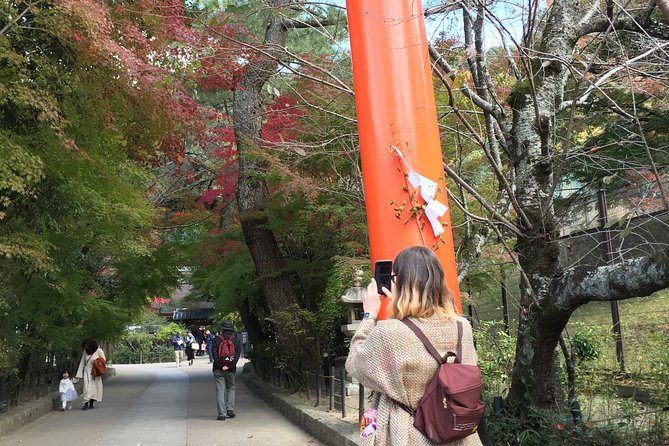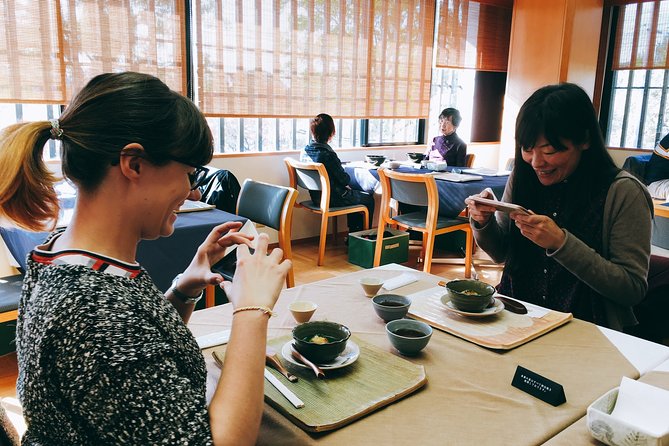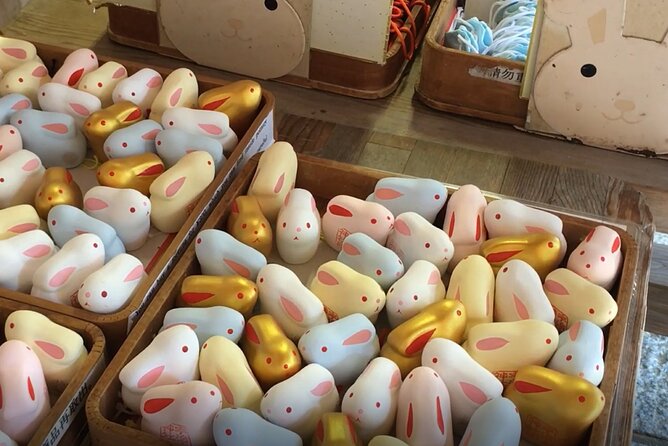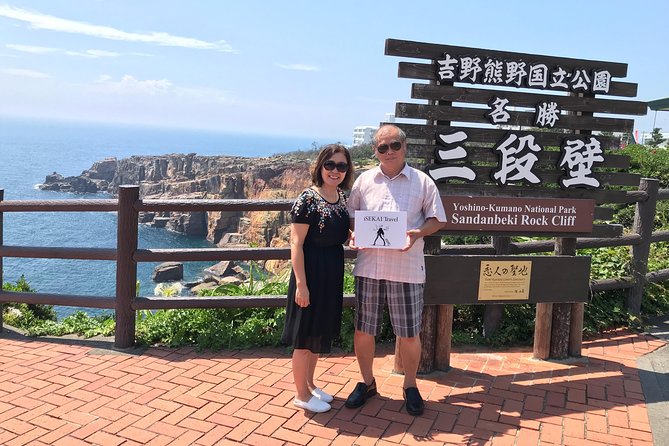Welcome to Kyoto Tea Town, where matcha enthusiasts can enjoy the rich history and culture of this beloved Japanese tea.
This comprehensive guide offers a captivating journey through the vibrant world of matcha, from traditional tea ceremonies and tastings to workshops and scenic tea gardens.
Discover the secrets behind matcha production, explore its significance in Japanese society, and indulge in its exquisite flavors and aromas.
Whether a seasoned connoisseur or a curious newcomer, Kyoto Tea Town promises an unforgettable experience in the enchanting realm of matcha.
Great News! You can reserve your spot for free with Viator. You can easliy cancel any time up to 1 day before without paying anything.
Quick Takeaways

- Kyoto has a long history and is renowned for its matcha production and tea houses.
- The cultural significance of matcha in Kyoto is rooted in rituals and traditions, symbolizing hospitality, harmony, and respect for tradition.
- Visitors to Kyoto can experience the Japanese tea ceremony, known as ‘chado’ or ‘sado’, in traditional tea houses located in serene gardens or historic buildings.
- Kyoto offers matcha workshops and tastings for visitors to learn about the traditional tea ceremony, matcha preparation techniques, and taste different varieties of matcha.
Not for you? Here's a few more great tours and experiences nearby.
History of Matcha in Kyoto

The history of matcha in Kyoto dates back centuries, making it a significant aspect of the city’s tea culture. Matcha, a finely ground powdered green tea, has been an integral part of Japanese tea ceremonies for generations. Its cultural significance is deeply rooted in the rituals and traditions surrounding the preparation and consumption of this vibrant beverage.
Kyoto, with its rich history and dedication to preserving traditional practices, is renowned for its matcha production and tea houses. The city’s tea culture is celebrated through elaborate tea ceremonies, where matcha is meticulously prepared and served in a tranquil setting. These ceremonies not only showcase the artistry and precision involved in making matcha but also provide a space for contemplation and connection.
The cultural significance of matcha in Kyoto is evident in its role as a symbol of hospitality, harmony, and respect for tradition.
You can also read our reviews of more tours and experiences in Uji.
Traditional Tea Houses in Kyoto
Frequently visited by matcha lovers, Kyoto is home to a multitude of traditional tea houses. These tea houses are an essential part of Kyoto’s rich tea culture and offer visitors a chance to experience the traditional Japanese tea ceremony.
The tea ceremony, known as ‘chado’ or ‘sado,’ is a highly ritualized practice that involves the preparation and serving of matcha, a powdered green tea. The tea houses in Kyoto are often tucked away in serene gardens or historic buildings, providing a peaceful and authentic setting for the ceremony.
Visitors can enjoy the serene atmosphere, learn about the history and significance of the tea ceremony, and enjoy a cup of freshly prepared matcha. It is an experience that allows travelers to truly appreciate the beauty and tranquility of Kyoto’s tea culture.
Matcha Workshops and Tastings

Now let’s delve into the world of matcha workshops and tastings, where visitors can further explore Kyoto’s rich tea culture and indulge in the art of preparing and savoring this exquisite powdered green tea.
In these workshops, participants have the opportunity to learn about the traditional tea ceremony and the proper techniques for making matcha. Experienced instructors guide attendees through each step, from whisking the tea to creating the perfect froth.
Participants also have the chance to taste different varieties of matcha, allowing them to appreciate the subtle differences in flavor and aroma.
Plus, some workshops may include demonstrations of matcha recipes, where participants can learn how to incorporate matcha into various dishes and desserts.
These workshops provide a hands-on experience that deepens one’s understanding and appreciation of matcha and its cultural significance in Kyoto.
Exploring Kyoto’s Tea Gardens

To fully take in Kyoto’s rich tea culture, a must-do for matcha lovers is exploring the city’s serene and picturesque tea gardens. These gardens offer a unique experience where visitors can witness the art of tea cultivation up close and learn about the traditions and rituals associated with Japanese tea.
Kyoto is home to several tea gardens, each with its own distinct charm and beauty. Visitors can stroll through the meticulously manicured tea fields, surrounded by lush greenery and breathtaking scenery. Some tea gardens even host Kyoto tea festivals, where visitors can partake in tea ceremonies and learn from tea masters.
These festivals provide an opportunity to take in the rich history and culture of tea in Kyoto, making it a truly unforgettable experience.
Must-Try Matcha Desserts in Kyoto

One must indulge in the delectable matcha desserts available in Kyoto, a haven for matcha lovers. Kyoto is known for its rich culinary tradition and matcha is a key ingredient in many of its desserts.
From traditional Japanese sweets like matcha mochi and matcha dorayaki to modern creations like matcha ice cream and matcha cheesecake, there is something to satisfy every sweet tooth. The matcha flavor is intense and earthy, providing a unique and refreshing taste.
Along With desserts, Kyoto also offers matcha inspired fashion, with clothing and accessories featuring vibrant green hues and elegant designs. For those looking to enjoy a different kind of matcha experience, there are matcha infused cocktails available at some bars and restaurants in the city. These cocktails combine the bitterness of matcha with the sweetness of other ingredients, creating a harmonious blend of flavors.
Whether you’re a matcha aficionado or simply curious to try something new, Kyoto’s matcha desserts are a must-try for any food lover.
Frequently Asked Questions

What Is the Best Time of Year to Visit Kyoto’s Tea Gardens?
The best time of year to visit Kyoto’s tea gardens is during spring (March to May) when cherry blossoms bloom, creating a picturesque backdrop. Traditional tea ceremonies in Kyoto are held year-round, providing an authentic experience for matcha lovers.
Are There Any Restrictions or Guidelines for Participating in a Matcha Workshop?
Restrictions or guidelines for participating in a matcha workshop include following the instructions of the instructor, respecting the traditional tea ceremony etiquette, and handling the equipment with care. Matcha holds cultural significance in Kyoto as it is deeply rooted in Japanese tea history.
Can I Purchase Matcha Tea or Related Products at the Traditional Tea Houses in Kyoto?
Yes, traditional tea houses in Kyoto offer a wide range of matcha tea products for purchase. From high-quality matcha powder to tea utensils and accessories, visitors can find authentic and traditional items to bring home as souvenirs.
Are There Any Specific Attractions or Landmarks Near Kyoto’s Tea Gardens?
There are several attractions and landmarks near Kyoto’s tea gardens, making it a must-visit destination for matcha lovers. Some notable places include the Fushimi Inari Shrine, Kiyomizu-dera Temple, and the Arashiyama Bamboo Grove.
Are There Any Recommended Activities or Tours That Combine Both Matcha Tastings and Exploring Kyoto’s Tea Gardens?
There are several recommended activities and tours in Kyoto that combine matcha tastings with exploring tea gardens. Visitors can experience matcha tasting etiquette and participate in traditional tea ceremonies in Kyoto.
The Sum Up

To sum it up, Kyoto Tea Town offers a captivating journey into the world of matcha, immersing visitors in the rich history and culture of this renowned Japanese tea.
From traditional tea ceremonies and tastings to matcha workshops and scenic tea gardens, there is something for every matcha enthusiast to enjoy.
Whether you are a seasoned connoisseur or a curious beginner, Kyoto Tea Town is a treasure trove of authentic and unforgettable experiences that will leave you with a deeper appreciation for matcha and its significance in Japanese society.



